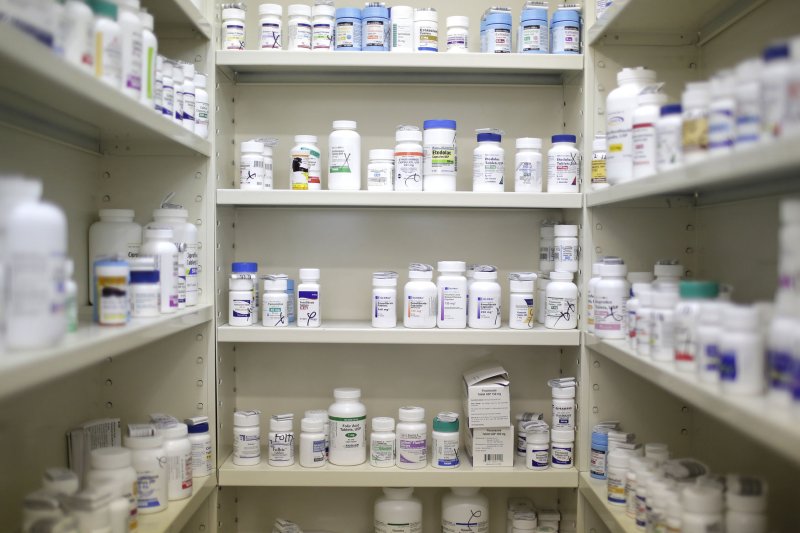Researchers found when antibiotics are combined with each other, with other drugs or even food additives, their effectiveness can be altered. File Photo by John Angelillo/UPI |
License Photo
July 5 (UPI) -- When antibiotics are combined with each other, with other drugs or even food additives their effectiveness can be altered, according to an international study.
Researchers found some combinations prevent antibiotics from their full potential, while others may lead to a reduction in antibiotic resistance. European Molecular Biology Laboratory researchers from the United States, Britain, France, Germany and Switzerland published findings Wednesday in the journal Nature.
In a large-scale screening, the researchers analyzed nearly 3,000 combinations of antibiotics, human-targeted drugs and food additives against six strains of three gram-negative pathogens.
More than 70 percent of the dual drug interactions are species-specific and 20 percent display strain specificity, which researchers said reveal a large potential for narrow-spectrum therapies.
They found specific combinations of drugs can help fight multi-drug resistant bacterial infections, but they are rarely used in clinics.
More than 500 drug combinations improved antibiotic results. These combinations also were tested in multi-drug resistant bacteria, isolated from infected hospital patients, and were also found to be effective.
Vanillin, which gives vanilla its distinctive taste, was paired with one particular antibiotic known as spectinomycin. It helped the antibiotic to enter bacterial cells and inhibit their growth. Spectinomycin was originally developed in the early-1960s for treating gonorrhoea but is rarely used today because bacterial resistance developed.
"Of the combinations tested, this was one of the most effective and promising synergies we identified," first author Ana Rita Brochado, a German research scientist at EMBL, said in a press release.
But the researchers found vanillin lessened the effect of many other types of antibiotics. They believe vanillin works similarly to aspirin to decrease the activity of many antibiotics.
EMBL group leader Nassos Typas, a German researcher, suggested that while some combinations of drugs decrease the effect of antibiotics, they might also have some benefit for people.
"Antibiotics can lead to collateral damage and side effects because they target healthy bacteria as well," Typas said. "But the effects of these drug combinations are highly selective, and often only affect a few bacterial species. In the future, we could use drug combinations to selectively prevent the harmful effects of antibiotics on healthy bacteria."
While the compounds tested by researchers are known to be safe for human consumption, trials will still be necessary to test the efficacy of individual drug combinations, the researchers said..















